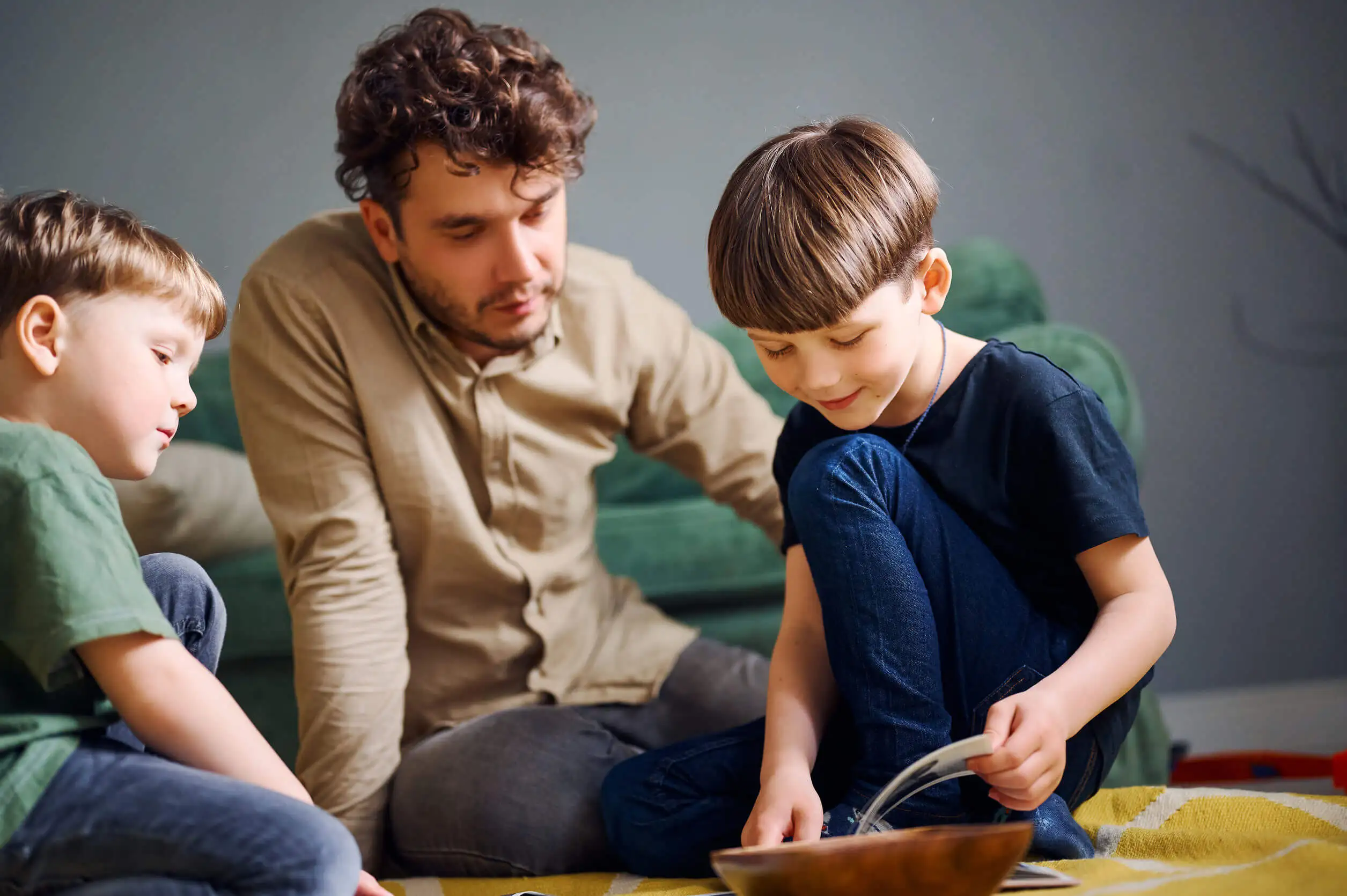What to Do When Children Prefer One Parent Over the Other


Written and verified by the psychologist Elena Sanz
For adults, the fact that a child expresses a preference for one of their parents is often a hard blow. Fathers may feel isolated and not find their place in the strong mother-child dyad. Mothers, for their part, may feel it’s an injustice or a betrayal that their child seeks more contact with his or her father. In any case, before taking it personally and acting in a way that may be harmful, it’s important to understand why children may like mom or dad more.
It’s important to know that, in most situations, this is a transitory stage. This preference can change.
It’s not that you’re doing it wrong or that you’re not up to the task of parenting. It’s simply that the child’s mind and emotions evolve and they may identify more with one or the other at any given time. Let’s take a closer look at why.
Children often prefer mom or dad more depending on their stage of development
During the first months and years, it’s common for the mother to occupy the first place in a baby‘s attachment hierarchy. She has carried the baby in her womb, shares the breastfeeding bond (in many cases) and is usually the one who takes care of the baby.
The preference for her may increase or become more pronounced around 7-8 months of age. At this stage, the so-called separation anxiety appears.
The baby then begins to understand that there’s a division between him and his mother, and fears that if he loses sight of her, she will cease to exist or never return. For this reason, he or she may cling to her with intensity and react with anguish if they try to separate them, even if it’s the father who seeks contact. This attitude may feel like a rejection for the other parent, but it’s simply a stage that will resolve itself.
On the other hand, at around 2-3 years of age, very marked preferences may also be present. At this stage, the child begins to forge his or her identity and claim his or her individuality.
In this process, he or she will express his tastes, preferences, and opinions. Thus, he/she may want to spend more time with mom or dad and will show it bluntly, and may even hurt the one who is not chosen.
However, this is not an indication that something is wrong. Quite the contrary, it’s a healthy sign of the maturing of the little one.
In fact, it’s likely that at this age, there’s an increased preference for daddy since separating from the primary caregiver and putting their attention on others helps them open up to the world.

We think you may be interested in reading this, too: Learn About the Stages of Language Development in Children
Why do children prefer mom or dad more?
However, when this preference is very marked and is maintained over time, different factors that are worth knowing may be playing an influence. Let’s take a look at them.
Affinity and personalities
As the child grows, the different affinity with each of the parents tends to be more marked. Keep in mind that each child and each adult has his or her own temperament and personality; some simply fit together better than others.
This doesn’t imply that the child feels more love for one of his or her parents, but that he or she may simply get along better with him or her and share more interests and character traits.
For example, an active and emotionally intense child may feel more understood and reflected in a parent who shares these characteristics than in another who’s very passive and not very expressive.
Parenting and attachment style
We also can’t forget that preference is not innate, but is earned through daily actions and through the established attachment bond. Fathers and mothers who employ democratic and respectful parenting and who offer presence, affection, and listening, generate a secure attachment. Children feel comfortable and loved by their side and naturally enjoy their company.
On the contrary, an educational style that’s too authoritarian, critical, or cold or is based on shouting or punishments can generate feelings of rejection and ambivalence in the child. Thus, if parents use unequal parenting styles, this can tip the balance towards the one that offers a better educational and emotional quality.
Like this article? You may also like to read: The Benefits of Science for Children: Curiosity and Exploration
Family dynamics
The dynamics of each family can also accentuate the predilections of the little ones. For example, if Mom spends most of her time with them and Dad arrives in the evening and is barely home, their return may become an event and their company becomes a gift.
In addition, each parent may have different roles and this may be unfair and cause inequality. If one is dedicated to setting boundaries and making rules to ensure that the little ones lead a healthy life and the other only makes concessions, spoils them, and entertains them, it’s natural that they prefer the second figure.
Emotional and time investment
Finally, it’s undeniable that children perceive what’s happening around them and realize when their parents care for them and prioritize them and when they don’t. Therefore, if you don’t dedicate time to your little ones or if you don’t have the patience to listen to them, get to know them and play with them, they will feel that emptiness, and it ‘s possible that they will opt for the parent who does do these things for them.

What to do when children prefer mom or dad?
Feeling that your child prefers the other parent can be hard and painful. For this reason, we’d also like to propose some guidelines to deal with this situation:
- Establish a secure attachment bond with your children. Offer them affection, attention, and listen to them with empathy. Spend time with them and take an interest in their likes and hobbies. Make them feel loved and accepted. This is fundamental so that the preference for one parent or another is not due to lack of affection.
- Understand the stages and evolutionary processes that children go through. This will help you understand that it’s not something personal or permanent but just another step in their normal development.
- Create a united front with your partner. It’s important that both of you are equally responsible for offering affection and boundaries and that all responsibilities are shared and equitable.
- Learn to regulate your own emotions. It’s normal that your children’s preference for their other parent may make you feel bad, but you shouldn’t react with rejection towards your children, withdraw your affection or try to buy them off or convince them to choose you. By respecting and accepting their preferences and decisions at all times, you provide them with a sense of security.
In short, this is a common situation that may arise in many families at different times. However, it’s the parents’ task to understand what is happening and not to react with emotional outbursts that may harm the little ones.
Remember that if you’re investing time and affection in your children and are giving the best of yourself, you have nothing to be worried about. They love you, regardless of whether they feel more affinity for their other parent at times.
All cited sources were thoroughly reviewed by our team to ensure their quality, reliability, currency, and validity. The bibliography of this article was considered reliable and of academic or scientific accuracy.
- Thomas, A., & Chess, S. (1985). Genesis and evolution of behavioral disorders: From infancy to early adult life. Annual Progress in Child Psychiatry & Child Development, 140–158.
- Sociedad española de psiquiatría y psicoterapia del niño y del adolescente. (s. f.). La función paterna. Disponible en: https://www.sepypna.com/documentos/libro_01_La-funcion-paterna.pdf
- Villanueva Suárez, C., & Sanz Rodríguez, L. J. (2009). Ansiedad de separación: delimitación conceptual, manifestaciones clínicas y estrategias de intervención. Pediatría Atención Primaria, 11(43), 457-469.
This text is provided for informational purposes only and does not replace consultation with a professional. If in doubt, consult your specialist.








